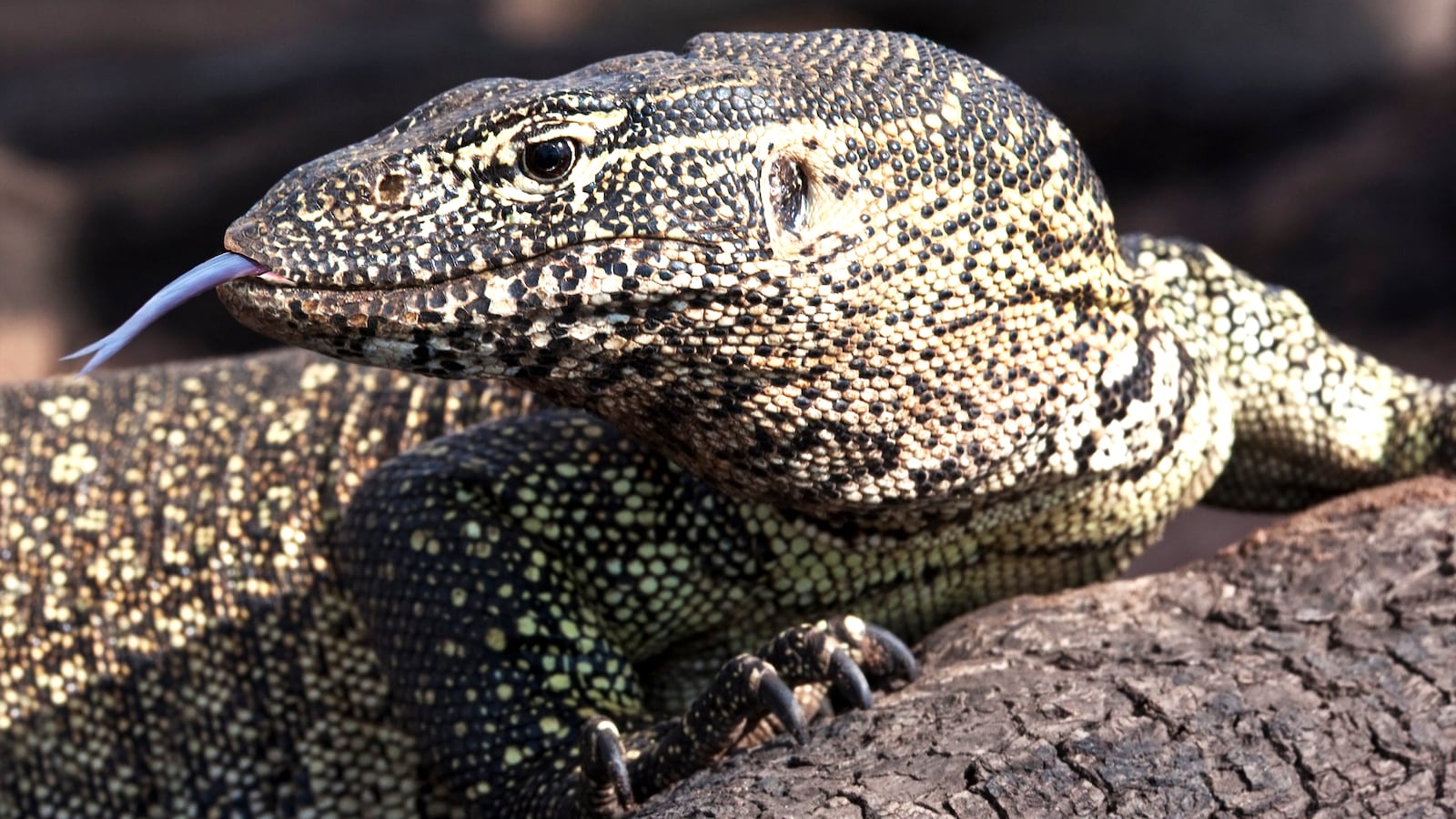“He is the size of a baby alligator and even then, I would be less afraid of an alligator than him.”
That’s how Zachary Lieberman describes the six-foot long Asian water monitor that’s been stalking the grounds of his Davie, Florida, home since Sunday, eluding the grasp of seasoned trappers.
Lieberman’s wife, Maria, first spotted the scaly beast on their pool deck, where it was staring straight at her through their sliding glass door and flicking its tongue. She captured a video of the prehistoric-looking reptile slinking towards the pool, then called the authorities.
“Since it’s been in our backyard my wife is scared to go in the pool,” Zachary Lieberman told The Daily Beast. “This thing can come out of the bushes and eat our small children as food. We just want it out of our environment so we can go back to our lives.”
For almost five days now, experts from the Florida Fish and Wildlife Conservation—along with local professional trappers and hunting dogs—have been trying to catch the 100-pound lizard. But the crafty creature has repeatedly thwarted their attempts, slipping away when they get close.
“Yesterday, we brought out hunting dogs and we were able to track his scent to a hole in the forest behind my house, but he was not there,” Lieberman said. “We finally got eyes on him near the water, but he took off running and bee-lined to the lake and swam away.”
Experts warn that these lizards, which are native to South and Southeast Asia, can bite, especially small children. While they’re not venomous, their mouths are riddled with bacteria.
“Asian water monitors kind of look like Komodo dragons,” Mike Kimmel, the owner of Martin County Trappings and Removals, told The Daily Beast. “It is not a Komodo dragon, but that’s the closest comparison.”
The hulking reptile has been terrorizing the Lieberman home ever since it escaped from a property in the neighborhood. While Asian water monitors are considered invasive by wildlife experts, it’s also legal for Florida residents to keep them as pets.
“The owner was a 14-year-old kid who originally said they had like three of them, but now we know they only have this one,” said Kimmel, who attempted to trap the creature on Tuesday. “He said they keep it in their backyard in their pool.”
After the story of the escaped lizard made the news, the animal’s owners, who could not be reached for comment, tried to retrieve their pet from Lieberman’s property but were unsuccessful.
“There is a large community of exotic pet owners in Florida,” said Lieberman. “It is unfortunate because some animals get too big the owners release them into the wild and these species should not be in Florida.”
Once captured, the Asian water monitor will likely be placed in a secure facility in the area.
“[The owners] have proved not to be responsible for the animal, and I will make sure it will be put in a proper facility that can house its size,” Kimmel added.
Kimmel, who has worked as a professional trapper for five years and is currently trapping pythons in the Everglades, said rain prevented him from even getting a look at the lizard when he attempted to trap it on Tuesday.
“I really wanted to get involved because the FWC was going to euthanize it,” he said. “I know plenty of facilities that would give it a good home. I have a facility that could house the lizard, but I would probably give it away because it’s too big.”
While Kimmel was unsuccessful at corralling the Asian monitor, he did relieve the Davie community of another large animal: a cane toad.
“Got this monster of an invasive cane toad while hunting down a 6ft monitor in Davie,” Kimmel wrote in a Facebook post. “Wish me luck y’all this lizard I’m tracking is HUGE!”
For now, the Lieberman family’s backyard is like a scene from a creature feature, but Lieberman remains hopeful the reptile will be captured soon so his young children, ages 2 and 4, can frolic in the pool again.
“Today seems like a good day,” he said Thursday. “The sun is out and the weather is cooperating. He likes to be out in the sun, and we are hoping today we can catch him.”
The Florida Fish and Wildlife Conservation could not be reached for comment.






